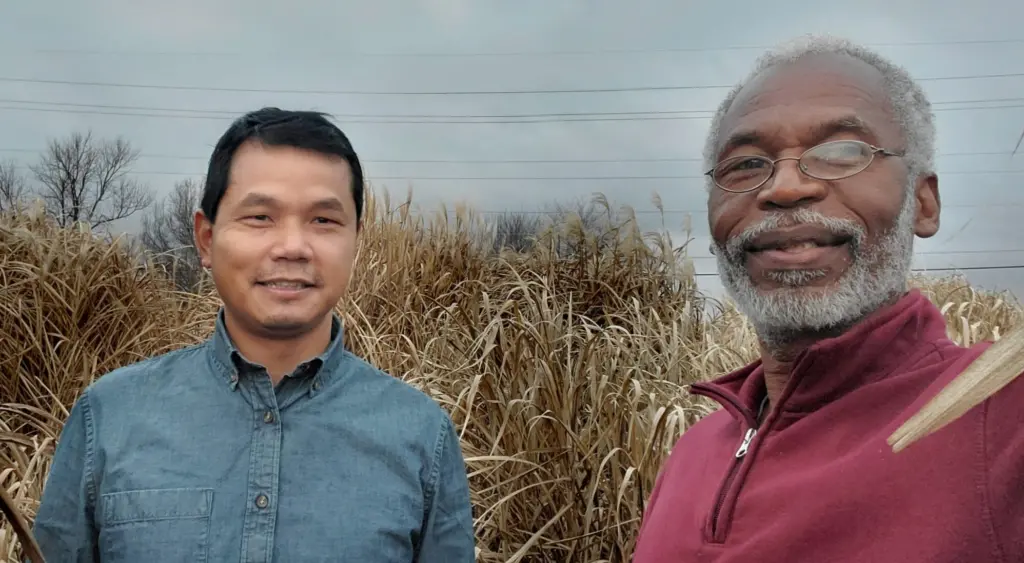
A nearly $1 million U.S. Department of Energy grant announced Aug. 18, 2023, will build educational and research partnerships through Alabama A&M University (AAMU) and other partners in the Center for Advanced Bioenergy and Bioproducts Innovation (CABBI).
AAMU Plant and Soil Science Research Associate Professor Ernst Cebert, a CABBI Feedstock Production Co-PI, serves as the PI for this new DOE RENEW (Reaching a New Energy Sciences Workforce) grant, titled “Strengthening Education and Research Capacity for Bioenergy Science at Alabama A&M University through a Combination of Education, Research and Partnerships.” The project will provide research opportunities — focusing on climate-smart solutions for agriculture and bioenergy feedstocks on marginal soil — for graduate students from historically excluded institutions.
Co-PIs include CABBI’s Xianyan Kuang, an AAMU Plant and Soil Science Research Assistant Professor; CABBI Director Andrew Leakey, Professor and Head of Plant Biology at the University of Illinois Urbana-Champaign; and CABBI Feedstock Production Deputy Theme Leader Kankshita Swaminathan, a Faculty Investigator at HudsonAlpha Institute of Biotechnology in Huntsville, AL.
“CABBI will continue its work enabling the development of an economically and ecologically sustainable bioeconomy,” Leakey said, “and this new funding is going to help our partners at AAMU lead additional efforts to cultivate the next generation of bioenergy workforce scientists from a pool that will be more diverse, equitable, and inclusive. We are proud to be supporting the work led by Dr. Cebert.”
Other grant Co-PIs include AAMU’s Qunying Yuan, and John Vogel and Sharon Greenblum of the Joint Genome Institute (JGI), Berkeley, CA.
RENEW’s objectives are to build a talent pool to further the DOE’s mission of solving the nation’s energy, environmental, and nuclear challenges through transformative science. The AAMU award is one of several, totaling $70M, that will offer hands-on experiences and open new career avenues for young scientists and engineers at 65 institutions spread across 23 states and the District of Columbia, 40 of which have been identified as Minority-Serving Institutions (MSIs) by the U.S. Department of Education.